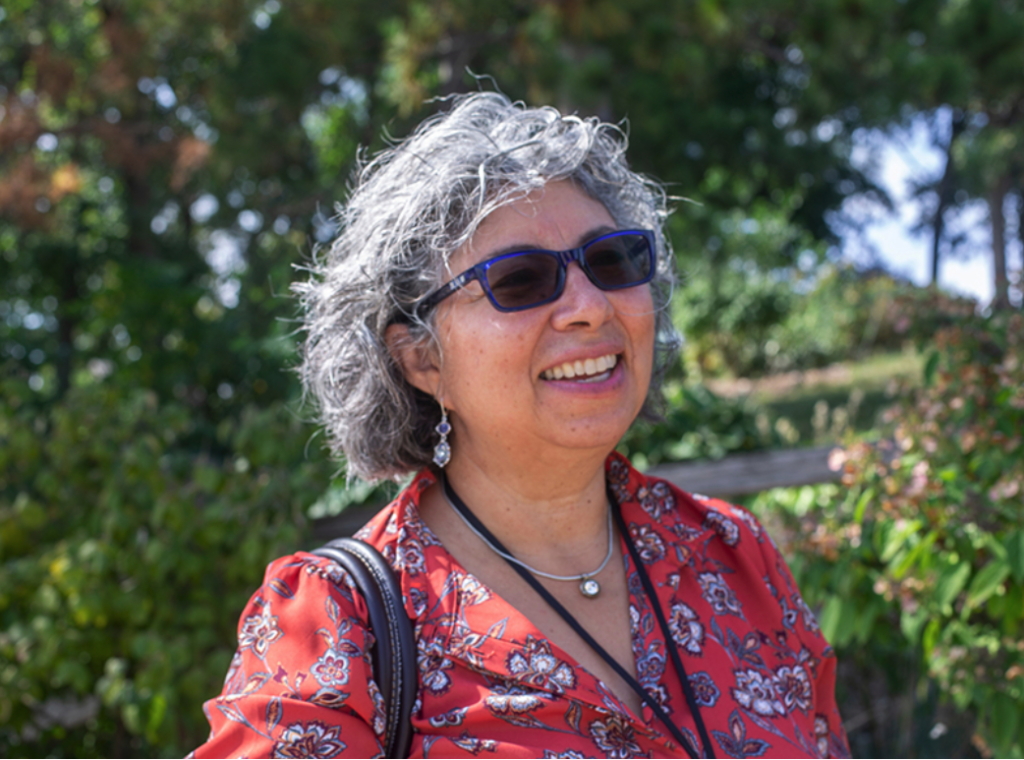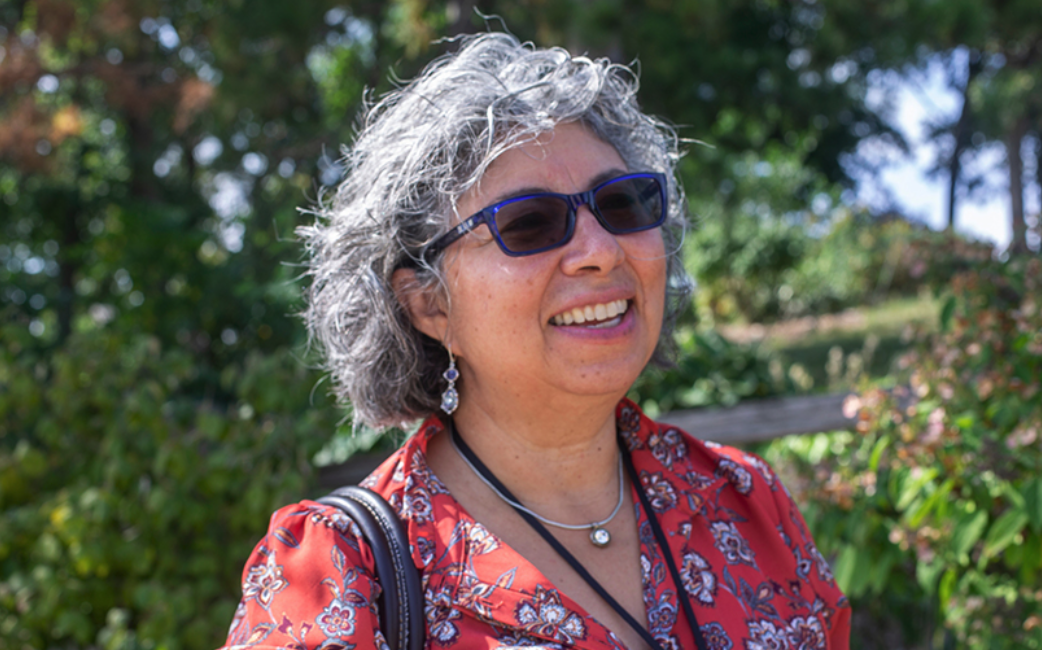Editor’s note: the following story has been submitted by the University of Wisconsin-Whitewater.
Pilar Melero, professor of Spanish at the University of Wisconsin-Whitewater, will receive the 2021 University Lifetime of Service Award from the State Council on Affirmative Action on Friday, Oct. 29, at the annual diversity awards program at the Wisconsin State Capitol in Madison. Recipients include state agencies, educators and other individuals whose efforts resulted in more inclusive workplaces, equity in healthcare, community-building and mentoring for young people.
In an announcement from the state Department of Administration, Melero was chosen “for dedicating her more than 20-year career in education to educating and advocating for the LatinX, Chicano, Hispanic and LGBTQ+ communities as well as serving as a mentor, resource and ally to all students and staff around equity and gender issues.”
Melero, a UW-Whitewater alum from the Class of 1988, double-majored in Spanish and journalism, then embarked on a journalism career at newspapers in Waukesha, Milwaukee and El Paso, Texas. As a journalist, Melero wrote bilingual articles, wrote for an African American newspaper and covered women’s issues and Latino issues.
“It was a milestone the first time I got published in an English-language newspaper,” she said. “English is my second language. I used to cover school districts. I had to read a lot of documents. I did a lot of asking. I was prepared for the writing but not for the reporting itself.”
She became a writer and columnist for her hometown newspaper, the Waukesha Freeman and for the Milwaukee Journal. From covering smalltown school districts, she went on to write about issues as diverse as unequal access to housing and organic farming. In a reporting project on women in Waukesha, Melero interviewed the director of the local women’s center. The interview stuck with Melero.
“She told me her dream would be that every women’s center in the world would be closed because they were no longer necessary,” said Melero. “That was the most beautiful statement I had ever heard.”
In Texas, Melero was asked to teach a Spanish course, and noticed how much she loved working with the students. She attended the University of Texas-El Paso for her master’s degree and then UW-Madison for her Ph.D. before returning “home” in 2003 to teach at UW-Whitewater and to build upon the legacy of courses in diversity she had found there as an undergraduate.
Along with her teaching duties, Melero and her colleagues developed new programs in diversity studies, renovated others and created curriculum. Like the foundation of a building, this work is almost invisible, but everything rests upon it. She credits the teams of curriculum builders she worked with saying, “They did their own mentoring with me. They mentored me with collegiality and support.”
“The biggest milestone workwise is with my team in Race and Ethnic Studies,” said Melero. “We developed minors in Asian/Asian American Studies, African American Studies, Latinx/Latin American Studies and American Indian Studies.”
“We did it all as a team,” she added. “(A milestone was) coming back to my alma mater where I first got exposed to diversity courses and to be able to continue that evolution and the legacy of all of these people (faculty).”
As an undergraduate student at UW-Whitewater, Melero found a home. Her academic family included Carlos de Onis, a professor of Chicano Studies and Spanish; and Spanish instructors Aldo and Adriana Busot. Before that, she remembers Doug Evans, a teacher and advocate at Waukesha South High School. If not for Evans’ early mentoring and guidance, she said, she likely would not have attended college at all.
Evans saw the young Melero’s academic ability when others didn’t, she said. Evans was so tall and lanky that he practically had to fold himself into his tiny office, especially on the day he and Melero’s parents crowded into that office to plan her college application process.
And as Melero walks to the podium of the State Assembly chamber in the Capitol to receive the award for a lifetime of achievement, she will retrace the steps of Roger Pulliam, a beloved mentor who was the first person to receive the award. Pulliam, in multiple roles through decades of service, infused first-generation college students with confidence, and especially those students from underrepresented communities. Pulliam was a mentor for Melero when she was an undergraduate studying Spanish and journalism. He was still there to encourage her to return as a faculty member.
“Whitewater is not a job,” said Melero. “Whitewater is my home.”

Pilar Melero, professor of languages and literatures. Photo contributed by UW-Whitewater/Craig Schreiner photographer.
This post has already been read 991 times!
